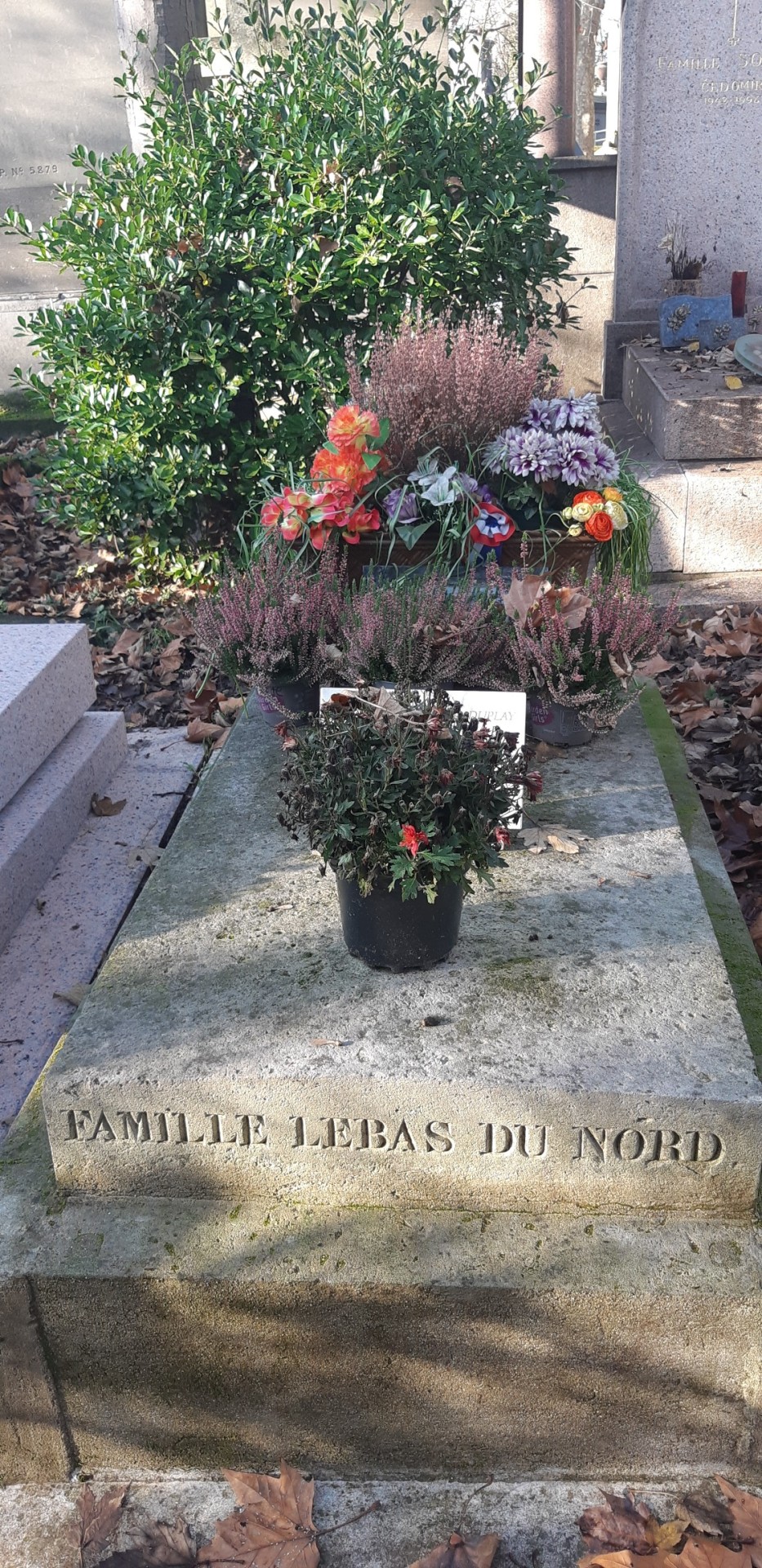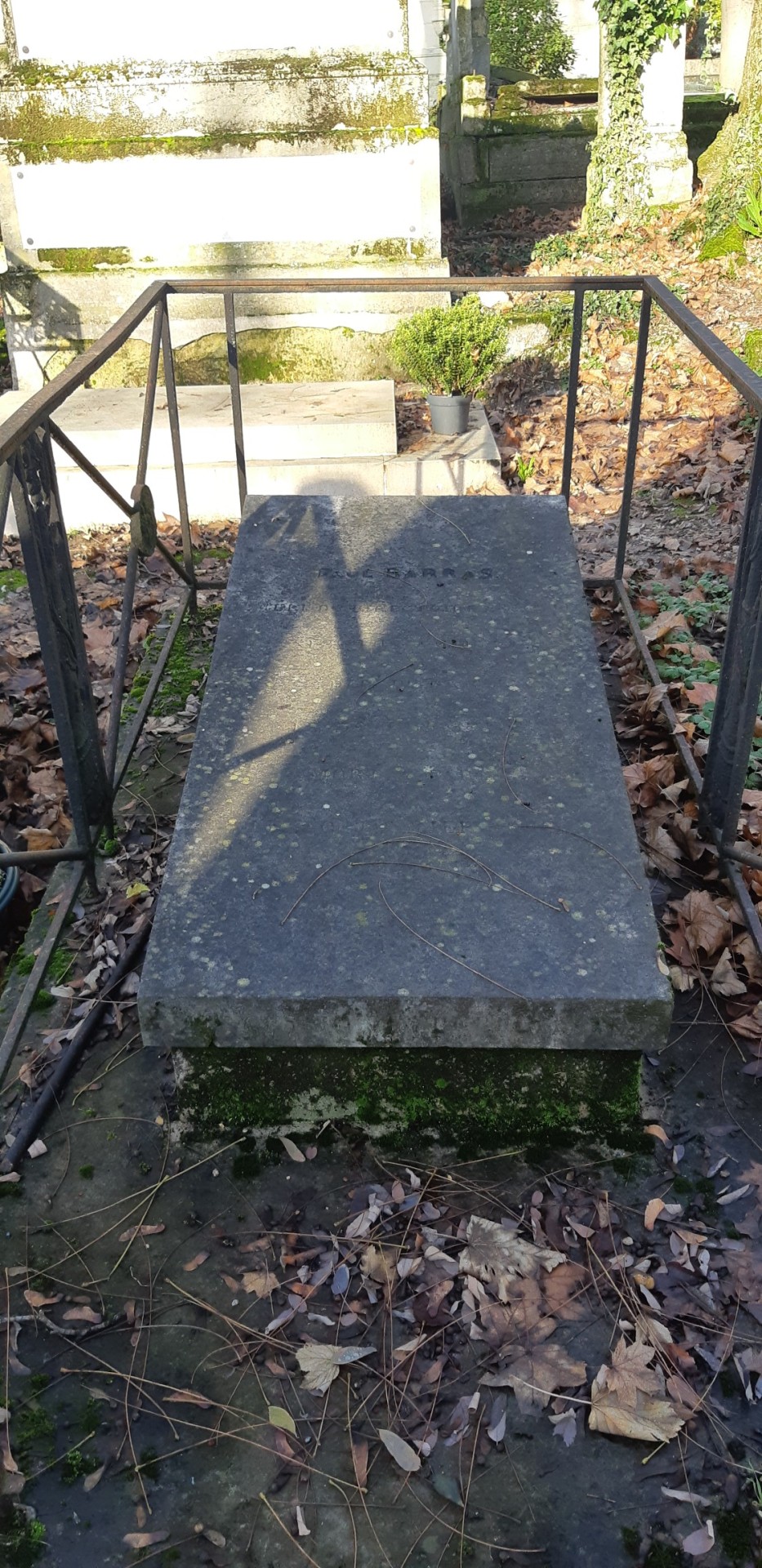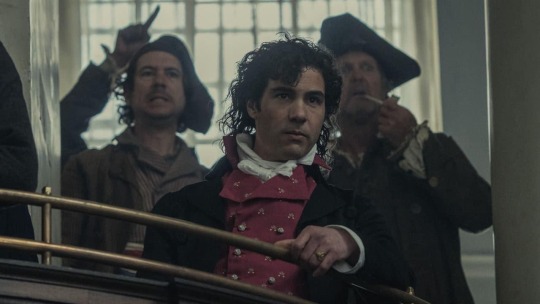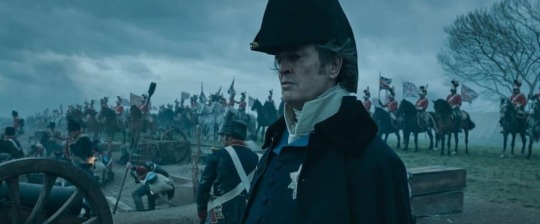#Barras
Text

Barras: we are friends, aren't we? Aren't we?!
Fouché: we couldn't be more friends than that... Why did I come to you if not? I could have turned to other people.
Barras: You... You have to rely on me only! Understood?
Fouché: Oh... yes, yes... You have a good heart *sarcasm*
I'm six minutes in and I'm already loving it
25 notes
·
View notes
Text
More Père Lachaise with @robespapier
Eleonore:

Babet and Junior:



Barras (look at the sad state of it):


Tallien again:

And last, but certainly not the least, Fouché's daughter in law (captured because of the last name alone tbh.)

His son is also buried at Père Lachaise but we didn't have time to visit him. Apparently, he does NOT have "Fouché" on the tombstone! Just "F." and "d'Otrante". (Come on, be proud of the snake name!)
60 notes
·
View notes
Text
Just finished seeing Napoleon (2023) for the first time! I liked it more than I thought I would. The comedy bits were funny and the core relationship of Napoleon and Josephine was engaging even if all the other characters were pretty flat.
I don’t know much about Napoleon post-emperor but the history at least before that was unsurprisingly pretty all over the place.
SPOILERS (this is a bullet pointed list of moments mostly from the first quarter of the movie set during the French Revolution/Directoire) (EDIT: I just saw the movie for a second time so I added amendments/clarifications in red)
the movie opens with a text scroll summarizing in very vague terms what led to the French Revolution
The first real scene is Marie-Antoinette being guillotined while Ça ira is sung. Her execution is then immediately followed by Robespierre giving his “Terror and Virtue” speech very menacingly
Didn’t care for the guy casted as Robespierre didn’t really look like him and was too old. He just comes off as a generic “power hungry” politician in a powdered wig
When Napoleon first charges at the siege of Toulon a cannon hits his horse right in the chest and Barras has to awkwardly help Napoleon off the ground
The next day Napoleon is awarded for taking Toulon and for some reason the gored horse is still there. Napoleon reached his hand inside the horse and grabs the cannon ball
A scene or two after Toulon they show Thermidor where the whole convention turns on aspiring dictator Robespierre
Barras is in the balcony of the Convention and specifically yells that Robespierre wants to be “judge, jury and executioner”
This Robespierre runs away as a crowd of deputies chase him up the stairs. Someone in a chair that might have been an 18th century wheel chair falls over but the scene happens so fast I wasn’t sure
I believe it was just a regular chair tossed over during Thermidor but I’m still not entirely sure since there is some kind of either design or mechanism on the side of the chair
Robespierre pulls a gun on the mob of deputies chasing him but the gun jams so he pulls out a second gun and shoots himself
Barras says “you missed” and then fingers his jaw wound to I guess parallel Napoleon and the horse
A little later Napoleon is at the Victim’s ball and Josephine is seen there next to Barras.
Thérésa Cabarrus is also in the cast list but she is never named in the movie so I assume she will be in the Director’s cut
Josephine and a woman hug while leaving prison so that’s probably Cabarrus but her name is never said
There’s also a scene that starts with Barras and Napoleon goofing around together and throwing nuts at a wall which is sweet I guess
Weirdly Barras is the only male character Napoleon seems to be genuinely friendly with
I was wrong it was his brother Lucien not Barras that Napoleon was goofing around and throwing nuts with which makes more sense. I must have gotten their mullets confused
Napoleon returns from Egypt in this movie because he hears Josephine is cheating on him
the newspapers he gets from the English aren’t stories on how the Directoire is unpopular/corrupt but instead cartoons of him being cucked
(This is foreshadowing for the worst part of the movie)
The only real Fouché scene is when Napoleon is sitting with the Directors telling them how he’s going to coup them and it’s going around the table getting their reactions as Napoleon calls their names
Then Napoleon says Fouché and it cuts to a guy standing in the corner of the room
Talleyrand is a more important part of the movie and is given some of historical Fouché’s moments (I liked his actor a lot actually and he’s the best character besides the core two)
Barras also stops being a character after he agrees to resign as director but he continues to show up in the background throughout the movie
This is SPOILERS AGAIN for the end of the movie but I have to mention this because it was an insane decision
———————————————————————
While Napoleon is in Elba the Tsar of Russia rolls up to Josephine’s manor in a carriage and is “entertained” by her
Napoleon sees a cartoon of him being cucked again in the newspaper and that is why the Hundred Days happens
#napoleon#napoleon (2023)#robespierre#frev#french revolution#fouché#barras#josephine beauharnais#talleyrand
114 notes
·
View notes
Text
People being kept out of the Duplay house compilation
…It was necessary, in order to reach the eminent guest deigning to inhabit this humble little hole of a place, to pass through a long alley flanked with planks stacked there, the owner's stock-in-trade. This alley led to a little yard from seven to eight feet square, likewise full of planks. A little wooden staircase led to a room on the first floor. Prior to ascending it we perceived in the yard the daughter of the carpenter Duplay, the owner of the house. This girl allowed no one to take her place in ministering to Robespierre's needs. As women of this class in those days freely espoused the political ideas then prevalent, and as in her case they were of a most pronounced nature, Danton had surnamed Cornelie Copeau "the Cornelia who is not the mother of the Gracchi." Cornelie seemed to be finishing spreading linen to dry in the yard; in her hand were a pair of striped cotton stockings, in fashion at the time, and which were certainly similar to those we daily saw encasing the legs of Robespierre on his visits to the Convention. Opposite her sat Mother Duplay between a pail and a saladbasket, busily engaged in picking salad herbs. Two men in military garb, standing close to her in a respectful attitude, seemed to be taking part in the duties of the household, obligingly picking herbs, in order to be free to chat more unrestrainedly under the shelter of this familiar occupation. These two men, since famous in their respective positions, were, the one General Danican, who since then, on the 13th Vendemiaire, became impressed with the idea that he was a Royalist, and who perhaps still retains the belief because he is one of England's pensioners; the other was General, later on Marshal, Brune. Freron and I told Cornelie Copeau that we had called to see Robespierre. She began by informing us that he was not in the house, then asked whether he was expecting our visit. Fréron, who was familiar with the premises, advanced towards the staircase, while Mother Duplay shook her head in a negative fashion at her daughter. Both generals, smilingly enjoying what was passing through the two women's minds, told us plainly by their looks that he was at home, and to the women that he was not. Cornelie Copeau, on seeing that Freron, persisting in his purpose, had his foot on the third step, placed herself in front of him, exclaiming: ”Well, then, I will apprise him of your presence," and, tripping upstairs, she again called out, "It’s Fréron and his friend, whose name I do not know." Fréron thereupon said, "It’s Barras and Freron," as if announcing himself, entering the while Robespierre's room, the door of which had been opened by Cornelie Copeau, we following her closely.
Memoirs of Barras: member of the Directorate (1899) page 167-169, regarding a meeting he and Fréron tried to have with Robespierre following their return from Marseilles in March 1794.
Very little time before the cathostraphy where Camille Desmoulins was victim, Joseph Planche, the humanist, the old rhetorics professor at the Bourbon college, who was strongly tied to him, met him in the hooks around Rue de Tournon. Camille was concerned, and told him: ”I’m lost. I went to see Robespierre, and he refused to see me.”
Historie de Robespierre et du coup d’état du 9 thermidor (1865) by Ernest Hame. According to J.M Thompson’s Robespierre (1935), Hamel obtained this anecdote from a friend of a friend of the mentioned Planche.
”…Try to see Maximilien, [said Charlotte Robespierre], you will be content; he was very glad that our younger brother saw you at Melun. On this occasion he spoke with interest of the exercises of your pupils and of the attention you had in entrusting him with presiding over them. I won’t introduce you to him, I would not succeed; I even advise you not to speak to him about me. You will be told he is out, don't believe it, insist on your visit.”
The Robespierre family was housed on rue Saint-Honoré, near the Assomption chapel, the sister and younger brother at the front, the older brother at the back of the courtyard. Gaillard went to Maximilien’s apartment; a young man, looking at him with the most insolent air, said to him, barely having opened the door: “The representative isn’t home…”
“He may not be there for those who come to talk to him about business, but that is not my doing; I will talk to him about his family that I know a lot, you have seen me come out of his sister's apartment who is involved in state affairs no more than I am... Bring my name to the representative, he will receive me, I’m sure of it.”
The fellow did not dare refuse to carry a paper on which Gaillard had taken care to indicate himself in such a way as to be recognized, he immediately came back and gave the visitor his paper saying: “The representative does not know you,” and the door was violently slammed shut!… . The insolence of this brazen man whom Gaillard knew to be the secretary of Robespierre, son of Duplay, to whom the sister attributed the excesses of his brother, the sorrow he felt at losing the hope of saving the judges of Melun and to ensure his personal rest, all these thoughts made him very angry; he calls the young man a liar, insolent, he accuses him of deceiving Robespierre and of increasing the number of his enemies every day, all this in the loudest voice with the intention of being heard by Maximilien and lure him to one of the windows where, surely, he would have recognized him. New disappointment, no one appears and Gaillard goes back to tell Mlle Robespierre about his misadventure.
“I prepared you for it, she told him. ”No one can approach my brother unless he is a friend of those Duplays, with whom we are lodging; these wretches have neither intelligence nor education, explain to me their ascendancy over Maximilien. […]”
La Révolution, la Terreur, le Directoire 1791-1799: d’après les mémoires de Gaillard (1908) page 264-265. This anecdote gets described as taking place somewhere in May 1794.
4 prairial, year 2 of the French Republic, one and indivisible
Nine o’clock in the evening a young girl presented herself at the house of citizen Duplaix [sic], asking to see Robespierre and saying that she had been looking for him for three hours. At the response made by citoyenne Duplaix [sic], the eldest daughter, that Robespierre wasn’t there, this young woman said that it was very surprising he was not at his house and showed a lot of impertinence and humor by saying that he was a public official and made to respond to all those who could come to his house; these threats obliged us to take her to the Committee of General Security.
Signed: Chatelet.
Note written by an agent May 23 1794. The ”young girl” in question is Cécile Renault. Cited in Histoire du tribunal révolutionnaire de Paris: avec le journal de ses actes (1881) by Henri Wallon, volume 4, page 5.
Those whom fate did not lead to the Duplay family presume that it was enough to be introduced to them to see Robespierre: they are wrong; I appeal to the testimony of all his former friends; not one could reach him: the entrance to his residence, similar to Tartarus, was constantly guarded by Cerberians who overshadowed everything... You, whom terror has compressed for so long, have you understood it well? No: to feel its full weight, compelling circumstances would often have had to drag you into its temple, where the sinister look of a Chalabre was sometimes equivalent to a death sentence; where once suspected your loss was sworn, which you accelerated even by no longer going there.
À Maximilien Robespierre aux Enfers (1794) by Paul-Auguste Taschereau-Fargues, page 11.
A young and pretty person aged 17 to 18, accompanied by her aunt, arrives one morning, by carriage, at Robespierre's door, to ask for her father's liberation. These two women speak to Mother Duplay, who they ask if Robespierre is avaliable. “No,” this she-cat replies abruptly. This initial reception intimidated the young person so much that, without daring to open her mouth, she sadly returned to her carriage. As she was about to climb into it, she said to herself that the way in which she had been received was perhaps the result of a lack of formality towards this woman whom, due to her dirty and disgusting attire, she took for the servant of the house. She therefore returns, the 25 livres assignat in hand, to try to make the female dragon yield. Femme Duplay eagerly runs to meet her, and, grabbing her by the arm, says to her: “Now that you are alone, you can go up. Citizen Robespierre really likes young people your age.” This innocent girl got so disturbed that she immediately went back to her aunt, whom she told, completely frightened, about her adventure.
Notes et souvenirs de Courtois de l’Aube, député à la Convention nationale, cited in La Révolution française: revue d’histoire moderne et contemporaine (1887), volume 12, page 929-930.
#robespierre#duplay family#frev#frev compilation#éléonore duplay#françoise duplay#simon duplay#charlotte robespierre#fréron#barras#forget guard dogs where can i get myself a guard duplay
24 notes
·
View notes
Text
Son piensos sanos
aporte: @clocasduende
53 notes
·
View notes
Text
New Stills
Napoleon on a horse
Barras looking over a balcony
Some random dude on a battlefield.



#napoleon bonaparte#napoleon#bonaparte#Napoleon on film#Napoleon cinema#film stills#Barras#random dude#joaquin phoenix napoleon#joaquin phoenix#ridley scott#ridley scott Napoleon#Napoleon movie#Napoleon the movie
30 notes
·
View notes
Text
Paul Barras was unbelievably over the top. He was trying to convince Napoleon to invade England to “purge the world of the monsters.” But Napoleon thought it was a bad idea, so Barras said this to him: “May St James's Palace crumble into dust. Your country wishes it. Humanity requires it. Revenge demands it.”
#source: Napoleon his wives and women by Christopher hibbert#Paul Barras#Barras#Napoleon#napoleon bonaparte#napoleonic era#France#England#napoleonic#frev#french revolution#text post#tumblr text post#history#late 1700s#early 1800s#french#French history#europe#first french empire#first French Republic#christoper hibbert#quote#reference#source#ref#quotes
78 notes
·
View notes
Text
Napoleon
Warning this post from Napoleon is very childish and far from any historical analysis and not very serious. If you want a serious post about Napoléon without fall in black legend this not the good post.
When Napoleon complained about the betrayals done to him what I think:
-Karma! You got the loyalty that you deserves.
-You raise and surround yourself with people as unusual, griouettes and bloody as Talleyrand, Fouché (especially him in terms of bloodiness) you have the expected result. At the same time you got the political entourage than you deserves.
-You come to taste your own medicine regarding betrayals and don't complain just to keep your power. This fair return of things makes me think of:
-Hypocritical. When he lectured Hortense de Beauharnais on her transactions with the Bourbons by saying that when we share the glory, we also share the misfortunes. Napoleon didn't you share your glory with the Jacobins after your rise favored by Augustin Robespierre (I think that deep down it is good that Augustin died before seeing Napoleon become a military dictator, he would surely not have forgiven himself for 'having favored the military dictator that the mountain people feared), but then you persecuted them. In addition, you made transactions with Barras, Fréron Tallien who are responsible for the death of Augustin Robespierre or have you forgotten this fact and who also persecuted the Jacobins and the Sans Culottes.
Unpopular opinion I approved of Hudson Lowe for putting Napoleon in his place. I would have been to decide on a punishment for Napoleon, I would have made him break stones like a convict for life (or I would have sent him to Haiti so that he could explain it alone and face to face to these former slaves why he persecuted them and reestablished slavery, after what happens to him I don't care a bit).
There you go, it's a very childish little post, you all have the right to boo me I admit it is well deserved in my primary anti-Napoleonicism but it is not a historical analysis that I did on this post so I decided to allowed for deviations.
10 notes
·
View notes
Text
la verdad☝️es que no hay una verdad🤔lei en una pared de la ciudad🏢habra sido una virtud o casualidad🤭y senti inquietud😬de estar a merced de tanta sed de dualidad
8 notes
·
View notes
Video
HEEEEEEEELLLP HE JUST LEFT BARRAS AND FOUCHE ON READ IRL LOOOOOOOL
#saint-just et la forces des choses#cinematic masterpiece#frev#french revolution#robespierre#fouche#barras
141 notes
·
View notes
Text

Ando cn biche fetty contando 🍀🥷🏽
#chile#santiago#spotify#tumblr chilenito#tumblr chilensis#trap#experimental#chile tumblr#hip hop chileno#amor#Escritos#Letras#Barras#Castolo#AQA#AQAGANG#latin#Latín trap#Trap chileno#Liminal#Trill#Dope#Gang#Maipú#Rare#Chill#Swag#Screwed#Chopped#Hyper
3 notes
·
View notes
Text
Alleged meetings between Robespierre and Danton and Desmoulins in the weeks leading up to the arrest of the two latter compilation (and yes, this is the most contrived title I’ve ever had for one of my posts)
Danton tried to imitate the talent of Fabre, but without success, since the efforts, which he made in order to cry, proved to be powerless and ridiculous, first at the tribune of the Jacobins, later at my house. […] In the last visit of which I speak, he talked to me of Desmoulins with contempt: he attributed his deviances to a vice that is private and shameful, but absolutely foreign to the crimes of the conspirators the Revolution. Laignelot was witness. The capacity of Laignelot seemed equivocal to me: he kept stubbornly silent.
Robespierre’s notes on the dantonists, written sometime in March 1794, before the signing of the arrest.
He (Robespierre) had pressed the hand of Camille, his childhood comrade, the same day he signed his arrest warrant.
Fréron in a text written shortly after Thermidor
Billaud-Varennes: Danton was Robespierre's accomplice; for, the day before Robespierre consented to abandon him, they had been together in the countryside, four leagues from Paris, and had returned in the same carriage.
Les crimes des sept membres des anciens comités de salut public et de surete general (1794) by Laurent Lecointre, page 25.
I must record here a fact which passed between Robespierre and Danton, a fortnight before the death of the latter, which will serve more than a long speech, to make the character of both of these two men appreciated and understood.
Danton and Robespierre had been at odds for some time: their division afflicted me; it could only be harmful to the interests of the Republic. I made my uneasiness in this respect known to these patient souls. They shared them and we concerted among ourselves the most effective means to put an end to it; the idea of bringing them together at a common dinner seemed the most favorable. Humbert, head of the office of foreign relation, one of us, moved by his ardent love for liberty and the Republic, undertook to invite them to dinner at his house, and to inform us of the agreed day.
This fixed day, we went to his house, it was at the end of Ventôse, the second Republican year. Robespierre and Danton were already there. I had been instructed to inform them of the reasons which had induced us to bring them together: I showed them how much their misunderstanding astonished their friends of the fatherland; that, it being unable to have any other cause than their misunderstood self-love, jealousy, or wounded pride, I found it strange that they listened rather to their personal resentment, than to the voice of the patrie, to which, like us, they deviated the sacrifice of all their affections. Danton took the floor and told us: “Hate has always been foreign to my heart; I have never felt this painful torment of weak souls; those I don't like, I leave; but I neither hate nor persecute them; I don't know why Robespierre, who was always to be at the head of the Colonne of Patriots, isolates himself almost always; I no longer know the cause of the very marked indifference which he has shown me for so long, which I can only attribute to the intrigues and to the hatred that several members of the Committee of Public Safety have dedicated to me, notably Messieurs. St. Just and Billaud-Varenne, the latter, because he cannot forgive me for having been lucky enough to forget him, when he and his wife were in misfortune; and the other, because I could not conceal my astonishment, that at his age, he professed principles as bloodthirsty as those he manifested. I also believe that the gossiping which surrounds him (Robespierre) contributes not a little to it, in that it never ceases to fill his imagination with a thousand chimeras, by maintaining him only with conspiracies, the guillotine, poison and daggers ready to tear his chest. Yes, continued Danton, addressing Robespierre himself, since circumstances allow me to tell you what I think, in the presence of patriots who, like us, are veterans of the Revolution, I believe that these are the causes of your conduct towards me; I have never complained about all the absurd comments that have been made about me, both in relation to the missions with which I was charged in Belgium, and to the fortune that it is claimed that I have acquired, because I never let my personal life impact my public life, and everyone knows that not only have I not increased my fortune, which is very mediocre, but that I have sacrificed parts of the one I had before the revolution. However, as I have no doubt that you love and serve your country in good faith: the unfortunate believed it!!! I must tell you, I have often moaned about your extreme credulity, and the ease with which, from the gossip of a few imbeciles, or the stupid insinuations of a few idlers, you seem to believe in crime, seeing you almost continually tire and trouble the Convention by the recital of piety conspiracies, which are only the fruit of your imagination, too easy to alarm: or the result of the most atrocious combinations. I'm not talking to you for no reason; I know what are the plans of the two charlatans I told you about, but I also know their cowardice, and they don't have enough courage to attack me: they don't dare!!! Believe me, Robespierre, reveal the intrigue, unite with the patriots, let us all walk in good faith, on the same path; let us forget our resentments to instead see only the patrie, its needs and its dangers; let us imitate our brothers in arms, who fight at the borders; come together, and our enemies without will soon be vanquished and subdued; with regard to those within, they are not big enough, no matter what people say, to be as dangerous as some people would like us to believe, let us keep our eyes open in regards to them, punish the culprits; the leaders, but pardon error, and you will see that the Republic, triumphant and respected outside, will soon be loved from within, by those same ones who, up to now, have blackened their enemies.”
”But with your principles and your morale”, observed Robespierre, who until then had kept the coldest silence, ”would one ever find culprits to punish?”
”Would you be angry, Robespierre,” Danton answered him, with that accent of the soul and of the heart through which we knew him, ”if there were no culprits to punish?”
Reader, whoever you are, put your hand on your heart, and tell me for which of these two men the tears that I see flowing down your cheeks are for!
Robespierre's observation frightened me, as well as those who said: "His category is depicted in its entirety, like that of the unfortunate Danton in his reply."
The reconciliation, however, appeared to be complete; they embraced: Danton put frankness in it; he was touched; we were all moved: well! How could you not? We only think, we only see the patrie, liberty, the republic; Only Robespierre remained cold like marble!....
Legendre, from Paris, Panis, deputies, Deforgnes, then minister of foreign affairs, Jeannet Boursier, administrator of military subsistence, Saintin, secretary general of the same administration, Humbert the elder, Humbert the younger, myself, and several other people, were present for this interesting scene, and a few days later Robespierre himself sent Danton to the scaffold!
Principaux évènemens, pour et contre la Révolution, dont les détails ont été ignorés jusqu’à présent: et prédiction de Danton au Tribunal révolutionnaire, accomplie (1794) by Jean-Lambert Tallien and Jean-Louis-Marie Villain d’Aubigny, page 49-50. Story reported by d’Aubigny. According to Danton (1978) by Norman Hampson, this meeting was confirmed by Legendre in 1795, although I’ve not yet found the place where he does so…
Looking through his bars, he (Danton) said many things that he might not have meant. […] Here are some phrases I retained: […] ”What proves Robespierre is a Nero, is that he never spoke as kindly to Desmoulins as on the day before his arrest.”
Mémoires d’un detenu pour servir à l’histoire de la tyrannie de Robespierre (1795) by Honoré Riouffe, page 88. According to Terror! The French Revolution and its demons (2020) by Marisa Linton and Michel Biard, Riouffe was heavily influenced by his own imagination when writing the book, claiming to have personally witnessed all famous prisoners, and that a study of the prison registries from Paris throws light on passages where Riouffe either invented, lied or exaggerated his account. Unfortunately, they don’t mention if this was the case for Danton or not. I would otherwise be willing to give this anecdote some sort of credability, seeing as the notes of Fréron, that report the same story, weren’t published until 1828, as far as I know. According to Danton (1978) by Norman Hampson, the same story was repeated by Courtois (can’t find the place he’s referring to), as well as by Desmoulins, if we’re to believe ”the well-informed and contemporary” pamplet The trial and punishment of Camille Desmoulins which I unfortunately can’t find any trace whatsoever of online.
Danton shook hands with her (Albertine Marat) and left, promising not to waste time. But when he got to the meeting room, he saw Robespierre chatting familiarly with Desmoulins. The latter came to tell him that Robespierre had shown him so much friendship that the sinister rumors being circulated must have been unfounded. Danton shrugged his shoulders, did not answer, and let the day go by again. In the middle of the night, gendarmes with an unmotivated warrant came to arrest him and took him to the Luxembourg prison. Camille, Philippeaux and Lacroix were also taken there.
Histoire de la Révolution française (1850) by Nicolas Villiaumé, volume 4 page 41. Villiaumé got into contact with Albertine Marat not long before her death in 1841.
Very little time before the cathostraphy where Camille Desmoulins was victim, Joseph Planche, the humanist, the old rhetorics professor at the Bourbon college, who was strongly tied to him, met him in the hooks around Rue de Tournon. Camille was concerned, and told him: ”I’m lost. I went to see Robespierre, and he refused to see me.”
Historie de Robespierre et du coup d’état du 9 thermidor (1865) by Ernest Hamel, page 337. According to J.M Thompson’s Robespierre, Joseph Planche told the story to Quicherat, and he to Carteron, a friend of Hamel.
All I know is that my brother had much love for Camille Desmoulins, with whom he had studied, and that when he learned of his arrest and incarceration in the Luxembourg he went to that prison with the intention of imploring Camille to return to the true revolutionary principles he had abandoned to ally himself with the aristocrats. Camille did not want to see him; and my brother, who would probably have defended him and perhaps saved him, abandoned him to the terrible justice of the Revolutionary Tribunal. Now, Danton and Camille were too closely linked for him to save one and not the other; so therefore, if Camille had not repulsed him at the moment when he was reaching out to him, Camille and Danton would not have perished.
Mémoires de Charlotte Robespierre sur ses deux frères (1835) page 135-136
The fact was that Danton, the most magnificent and grandest revolutionary who ever breathed, was beginning to be pointed out as a moderate, in other words a traitor, because he thought that excesses might prove harmful to the revolution, and had styled exaggerations ultra-revolutionary. Laignelot, one of my most faithful colleagues in the National Convention, came and informed me that Danton, desirous of coming to an understanding with Robespierre, had begged him, Laignelot, to arrange for a conversation between them. One fine morning the two of them called on Robespierre. The dictator was at his toilet, the ancient forms of which took up no little amount of time. Danton, at once beginning the conversation, said, without preamble, "Let us come to a mutual understanding and save liberty, which is being attacked by our most relentless enemies; they are calumniating and deceiving the people, who look upon them as their friends.” Robespierre, who never "thou'd" anybody, replied to Danton, "What do you (vous) mean? Does this apply to me? You may give to my speeches whatever interpretation you see fit. Your mission to Belgium is perhaps not exempt from blame; you were badly seconded, badly surrounded. Lacroix has heaped odium on that mission.” Thereupon Danton, assuming a very lofty tone, said to him, "You are speaking now just as the aristocrats do; they seek to discredit the Convention and the patriots composing it. I will never suffer that any attack be made upon them. You shall not dishonor the Revolution by calumniating its founders." Here Danton's voice became weak; Robespierre, still continuing his toilet, looked at him and made a gesture of contempt. Then Danton, deeply moved, unfolded the dangers threatening liberty, saying: ”Liberty will perish if any attacks are made on its defenders, if the Terror is directed against them in lieu of continuing to strike those who conspire against it, and against whom it was established - against your very self, Robespierre, ere six months have gone by, if we become divided against ourselves." The conversation came to an end with affected civilities. Danton and Laignelot withdrew, and were still speaking in the street of this sinister interview, when Robespierre emerged from the house and passed close by them, pretending not to notice them.
Memoirs of Barras, member of the Directorate (1895) page 176-177. This is clearly the same meeting Robespierre mentions in his notes. However, it is hard to know for sure if this story actually comes from Barras himself, or if is an embellishment created by the people he passed the notes his memoirs were based on in 1827 up until their publication in 1895. And if that is the case, were they added before or after Robespierre’s notes were first published in 1841?
#drama so much drama#i wonder how many of these actually happened…#robespierre#danton#desmoulins#barras#fréron#courtois#french revolution#frev#frev compilation
29 notes
·
View notes
Text


✿ ﹒💋. ⟡ barras e barras e barras….

◜ ཐིཋྀ ◝ jotapê ;


————————————————————————————


6 notes
·
View notes
Text
Guys, can sOMEONE PLEASE TELL ME WHAT IS THE DIFFERENCE BETWEEN
BARERE AND BARRAS AND BARBAROUX!!!!
#frevblr#frev community#i always need to go to google to understand who is who#i'm so done with them#barere#barras#barbaroux#im screaming#get help (:#fun fact: i still don't understand#shit post
14 notes
·
View notes